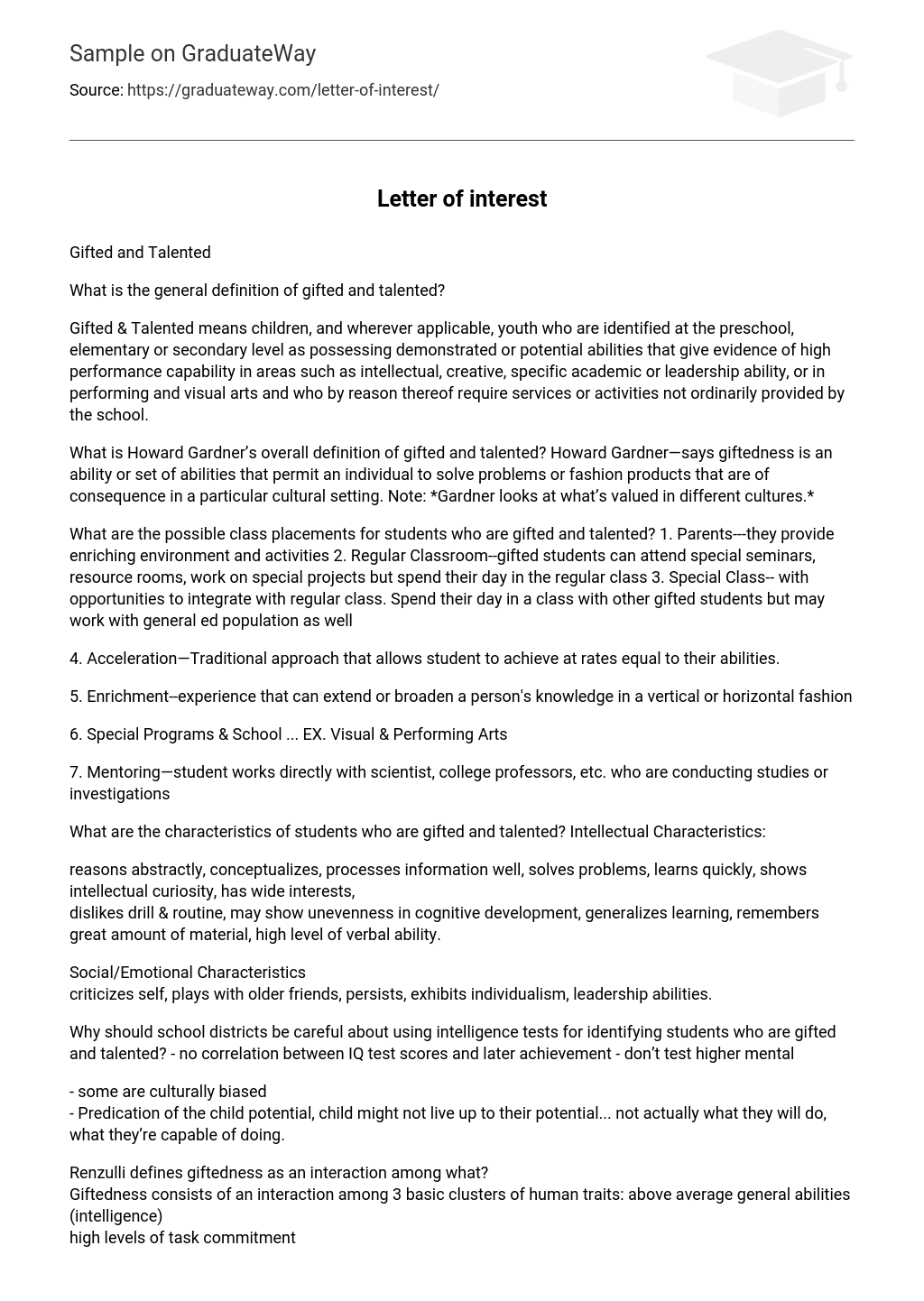What is the general definition of gifted and talented?
Gifted & Talented means children, and wherever applicable, youth who are identified at the preschool, elementary or secondary level as possessing demonstrated or potential abilities that give evidence of high performance capability in areas such as intellectual, creative, specific academic or leadership ability, or in performing and visual arts and who by reason thereof require services or activities not ordinarily provided by the school.
What is Howard Gardner’s overall definition of gifted and talented?
Howard Gardner—says giftedness is an ability or set of abilities that permit an individual to solve problems or fashion products that are of consequence in a particular cultural setting. Note: Gardner looks at what’s valued in different cultures.
What are the possible class placements for students who are gifted and talented?
- Parents-they provide enriching environment and activities
- Regular Classroom-gifted students can attend special seminars, resource rooms, work on special projects but spend their day in the regular class
- Special Class-with opportunities to integrate with regular class. Spend their day in a class with other gifted students but may work with general ed population as well
- Acceleration—Traditional approach that allows student to achieve at rates equal to their abilities.
- Enrichment-experience that can extend or broaden a person’s knowledge in a vertical or horizontal fashion
- Special Programs & School … EX. Visual & Performing Arts
- Mentoring—student works directly with scientist, college professors, etc. who are conducting studies or investigations
What Characteristics do you see in the primary, secondary and tertiary phase of acceptance when families find out they have a child with a disability?
- Primary- shock, denial, grief, often accompanied by depression parents may be unable to comprehend information
- Secondary Phase- ambivalence followed by guilt, anger, shame, embarrassment
- Tertiary Phase- bargaining, adaptation, reorganization, acceptance
The birth of a child with a disability may cause marital stress because of what?
Causes of Marital Stress:
- child takes too much of wife’s time and attention
- fatigue
- financial burdens
What do siblings experience?
- tend to mirror attributes & behaviors of parents
- may feel anger, loneliness, anxiety, resentment
- may feel the need to compensate for the child with the disability
What are the DEVELOPMENTAL cycles parents go through in rearing a child with a disability?
- parent learns of or suspects a disability
- determine what action should be taken in terms of education
- child completes education
- parents become older & are unable to care for child
What can grandparents provide?
- must deal with how to respond to their own child as well as their grandchild
- may have difficulty accepting disability
- can contribute respite care, support, transportation, and sometimes financial assistance
How do fathers respond to a child with a disability different from mothers?
- more likely to internalize feelings
- may resent wife’s attention to child
- may feel his hopes & dreams are shattered
What do professionals need to understand when they work with families of children with disabilities?
- need to understand the impact they have on the family
- need to understand the impact the child has on the family
- need to understand the impact the child & family has on them.





